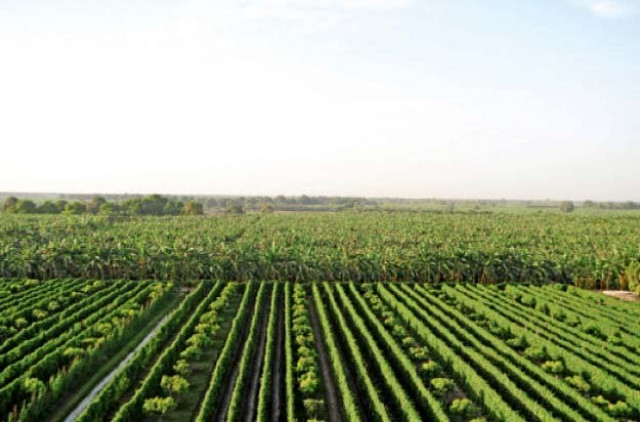PBF says agri-sector capable of doubling $3b contribution
Urges govt to control cartels, market manipulation to aid exploited farmers

Pakistan Business Forum (PBF) Vice President Jahan Ara Wattoo stated that Pakistan’s agriculture sector holds great potential, and its current contribution of $3 billion to the economy could be doubled with viable approaches covering all aspects of this vital sector and addressing stakeholders’ concerns.
Addressing a workshop on Saturday, she highlighted the urgent need to control cartels in commodity markets to enable the crop component of the agriculture sector to yield tangible results. She noted that the government has high expectations from cotton growers and cited the example of when it declared an indicative price of Rs8,500 per 40kg, leading to a strong revival of crops and doubling production in just one season. However, once cotton started arriving in the market, the price crashed to Rs6,500 per maund as market cartels exploited the farmers.
“We observed the same phenomenon in the maize crop, with its price dwindling to half its pre-sowing value,” she maintained, adding that, “In a production cycle with very high costs, price slides like these leave farmers crippled for years. For urea alone, growers paid more than Rs120 billion to black marketers this season, as urea bags were being sold in the market at four different prices.”
Read: Minister pushes for agricultural growth
Jahan Ara added that other agricultural inputs such as diesel, electricity, water, and labor for cropping/farming are also very costly, while growers by and large have to pay a 22% bank markup, leaving most farmers under heavy debts for years after these massive expenses.
PBF Chairman (South Punjab) Malik Suhail Talat remarked, “Agriculture does not fit into calendar years; it is all about continuity. Decisions made in 2024 regarding what to sow and what not to sow will define 2025. For the last decade or so, maize has anchored agriculture. With its price crashing, each farmer will now have to decide whether to continue with the maize crop or not.”
He described Punjab’s wheat policy as confusing, noting that wheat procurement and release prices were changed twice in the last two months, leaving farmers in a financial and policy quandary. The cotton crash has left farmers unsure about its future, he said, adding that early potato crop prices slid after initial better returns, leaving growers to consider other options. He claimed that capitalists were manipulating political, economic, and other systems in the country. He urged all political parties, the public and private sectors, and all stakeholders to make collaborative efforts to address this issue.
Published in The Express Tribune, March 17th, 2024.
Like Business on Facebook, follow @TribuneBiz on Twitter to stay informed and join in the conversation.



















COMMENTS
Comments are moderated and generally will be posted if they are on-topic and not abusive.
For more information, please see our Comments FAQ